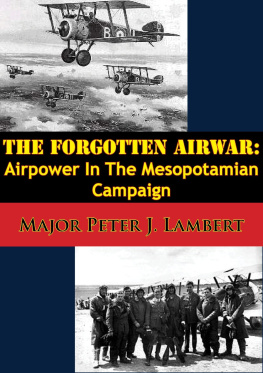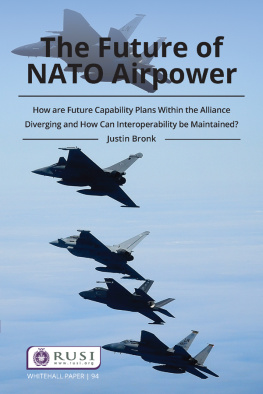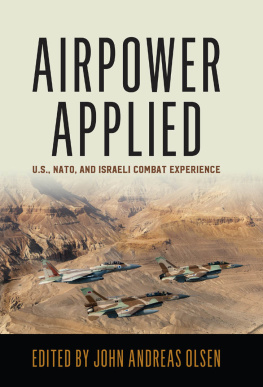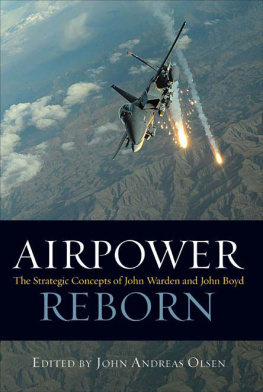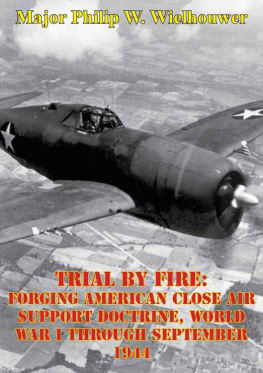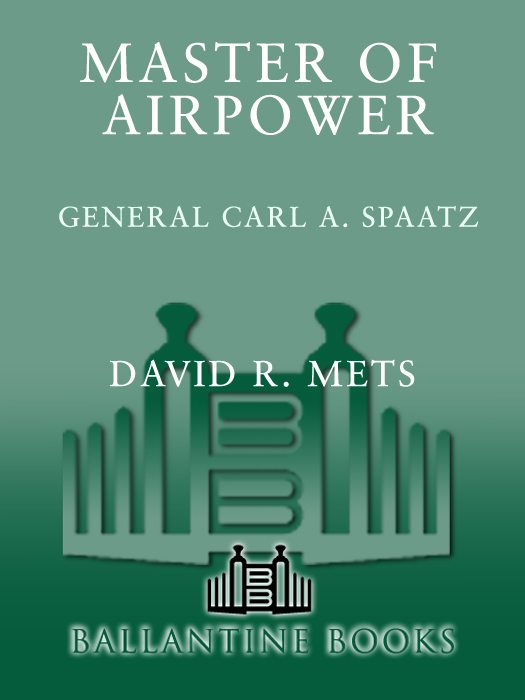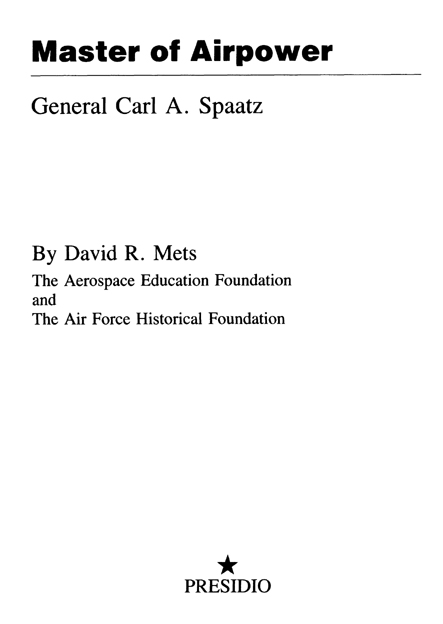Copyright 1988 by Air Force Historical Foundation/Aerospace Education Foundation
Published by Presidio Press
505 B San Marin Drive, Suite 300
Novato, CA 94945-1340
All rights reserved. No part of this book may be reproduced or utilized in any form or by any means, electronic or mechanical, or by any information storage and retrieval systems, without permission in writing from the publisher. Inquiries should be addressed to Presidio Press, 505 B San Marin Drive, Suite 300, Novato, CA 94945-1340.
Library of Congress Cataloging-in-Publication Data
Mets, David R.
Master of airpower/David R. Mets
p. cm.
Bibliography:
eISBN: 978-0-307-53822-2
1. Spaatz, Carl, 18911974. 2. GeneralsUnited StatesBiography. 3. United States. Air ForceBiography. 4. Aeronautics, MilitaryUnited StatesHistory. I. Title.
UG626.2.S66M48 1988
358.40092dc 19
[B] 88-5427
v3.1
Contents
Chapter I
AN AIRMANS ROOTS
The summer of 1974 will long remain etched in the memories of Americans who experienced it. Abroad, the United States was approaching the climax of a two-decade involvement in Vietnam. The front page of the Washington Post for July 14, 1974, was covered with crises. One column told of two desperadoes who were holding hostages in a District courthouse, demanding an airplane to flee the country. Another described the contempt findings against a police strike in Baltimore. The lead story reported: Culminating 18 months of investigation and hearings that constituted the most intensive congressional inquiry into alleged White House corruption in American history, a unanimous Senate select Watergate committee called for major reforms to prevent a recurrence of the Watergate affair.
That July 14th also was the day this country lost a great man, Gen. Carl Andrew Spaatz, graduate of the United States Military Academy at West Point, air pioneer, outstanding operational commander in World War II, and first Chief of Staff of the United States Air Force. He died at the Armys Walter Reed Medical Center in Washington, D.C.
A memorial service, conducted by a longtime friend, Chaplain Charles Carpenter, was held for him in the chapel at nearby Andrews Air Force Base. After the service, the casket and the funeral party of family and pallbearers were flown to Colorado by Air Force jet, and General Spaatz was laid to rest in the Air Force Academy cemetery.
The youngest children in the party had not known their grandfather
The Spaatz grandchildren were not the only ones who might have asked these last two questions. Among the major combat leaders of World War II, Gen. Carl Tooey Spaatz was the least known outside the military. He was a genuinely modest man who abhorred ostentation and rejected offers from publishers to write his memoirs. Such books, he thought, were apt to be self-serving, or at least so regarded. In any event, if he agreed, he would have to write honestly. Inevitably that would hurt some people he liked and admired but with whom he had disagreed on strategic, tactical, moral, or ethical grounds.
At the time of his death, there were tributes from civilian and military leaders here and abroad. Typical were the words of Sir John Slessor, Marshal of the Royal Air Force: He had an uncommon flair for the really important factor in any issue. Tooey was one of the relatively few Commanders on either side in World War II to whom can honestly be applied that much overworked word, Great.
That view was shared by Field Marshal Sir Michael Carver, chief of Britains Defense Staff and editor of The War Lords: Military Commanders of the 20th Century. From a list of some hundred nominees, Sir Michael selected forty-three on whom short biographical essays were written by civilian and military historians. Among the forty-three were but five airmen. The only American air commander was Carl Spaatz, whose essay was done by Alfred Goldberg, chief historian in the Office of the Secretary of Defense.
Any assessment of Spaatz must begin with the understanding that he was his own man. Neither Marshall, nor Eisenhower, nor Arnold or Portal, not even Churchill, overawed him; he regarded himself unselfconsciously as their peer in the art of making war. Nevertheless he did not have the mental arrogance characteristic of many self-made men. But he had strength and force of characterenough to deal on equal terms with other leaders who were strong and stubborn also. And yet Spaatz was a man of genuine modesty and diffidence. There was a sturdy no-nonsense quality and an unmistakable professionalism about him that could not help but impress. His modesty did not inhibit his capacity to command because he knew his own mind and made free to speak it when necessary.
More than a decade later, a conference on air leadership, sponsored by the Air Force Historical Foundation, considered as possible models for leadership the military careers of Gen. Carl Spaatz and of Rear Adm. William A. Moffett, chief of the Navys Bureau of Aeronautics in the 1920s. Spaatzs methods and achievements were presented by the author of this book and by Dr. I. B. Holley, Jr., of Duke University. The conferees agreed unanimously that Tooey Spaatz justly deserved his reputation for genius in the organization and command of great air forces. Almost unanimously they felt that Spaatzs career, extending from the early days of military aviation through two World Wars and culminating in his selection as the first chief of staff of the newly independent United States Air Force, was not a model to guide aspiring young officers. This apparent paradox sets some parameters for a study of command as exemplified by Carl Spaatz, taking into account the unique combination of character, personality, experience, and world events by which his years of service were shaped.
Ancestral Roots
On the 14th of March 1865, the mayor of the town of Eberfeld issued in the name of the King of Prussia a passport to Carl Spatz Carl Spatz never went back.
The reason for Spatzs emigration to the New World is not recorded. He left behind a family of solid middle-class accomplishment. His father was in the fabric dyeing business and the family was related to the famous Krupp manufacturers through Juliana.
Carl died prematurely in 1884, leaving his family and the paper in the hands of his son, Charles B. Spatz, then nineteen. Charles, though not as well educated or experienced as his father, inherited Carls aptitude for writing and speaking. He was active in community affairs, was a stalwart Democrat, and was twice sent to the Pennsylvania legislature.
The Boyertown area was, and still is, populated largely by people of German extraction and of the Mennonite or Lutheran faith. The Spatzes belonged to the Reformed (Lutheran) Church. The Berks County Democrat of Charles day reveals the editor as a liberal, by the standards of his time, who shared the main values of his German-Protestant neighbors. The work ethic was strong among them and the editorial pages of the paper are replete with homilies on the virtues of honesty and manual labor. Also apparent is a strong utilitarian bent and a stout commitment to law and order. At the same time, editor Spatz salted it with a wry sense of humor that was passed on to his son, Carl Andrew.


